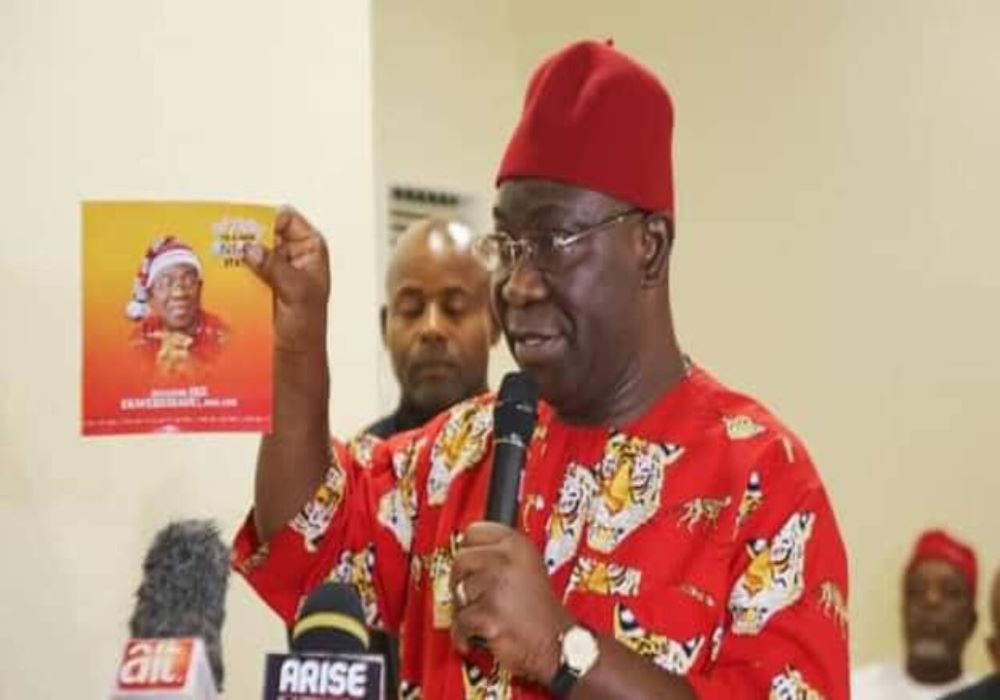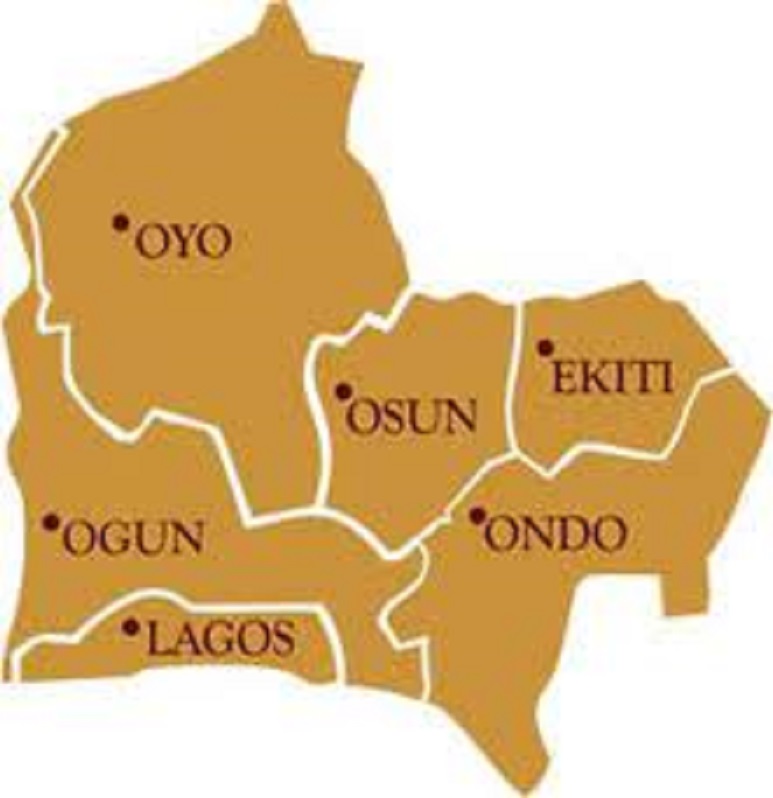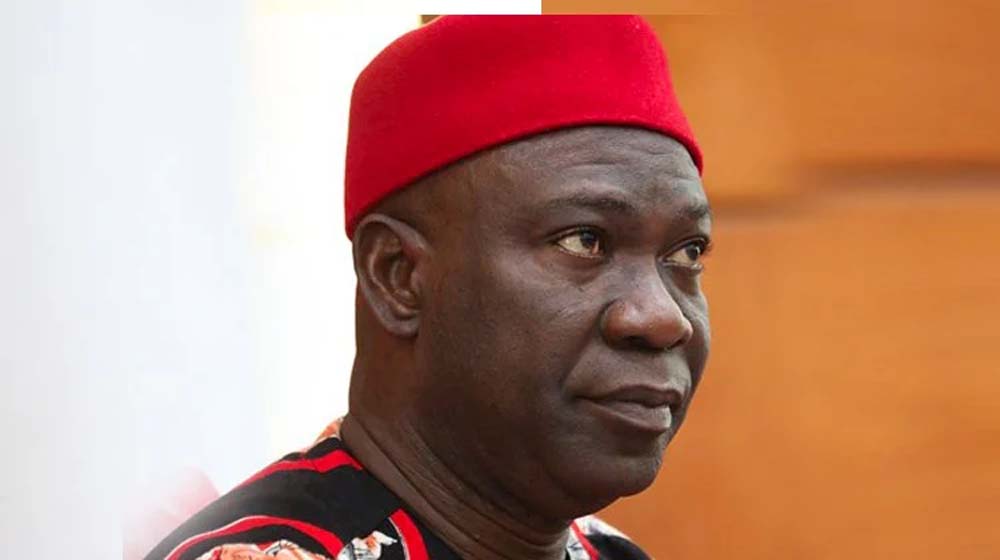Politics
Ekweremadu says for Nigeria’s democracy to work, Direct Primary remains the only viable mode

To consolidate on the Nigerian Nascent democracy former Deputy President of the Senate, Senator Ike Ekweremadu, has indicated that only direct primary election option is most viable in the nomination of candidates.
The senate had infused direct primary as the only option in the 2022 electoral act which prompted President Buhari to decline assent to the bill until the National assembly deleted the clause to allow for Indirect, Direct and Consensus options
Again, most of the senators lost out due to the supremacy battle with their governors as the consensus option was adopted by most States.
A statement issued by his special adviser on media Uche Anichukwu also quoted the lawmaker to have rued the negative influence of narrow and partisan interests in the making of 2022 Electoral Act, as the long-delayed creation of state police could no longer guarantee internal security.
He also called on the nation’s leaders to seek urgent help of the international community to flush out terrorist cartels or risk Nigeria becoming another Somalia.
Ekweremadu spoke at a commemorative lecture, “Nigeria’s Democratic Experience: Reflections on Leadership Recruitment and Democratic Institution Building”, organised by the National Legislative and Democratic Institute (NILDS) in Abuja on Tuesday.
“When we mounted the leadership of the 6th National Assembly in 2007, and in subsequent Assemblies, we took it upon ourselves to reform the electoral system, including strengthening the critical institutions in the electoral process, namely the Independent National Electoral Commission (INEC) and the political parties.
“Whereas the INEC has really stabilised and improved greatly, the political parties have not made the expected progress.
Read Also >> Lawan Hails President Buhari Over Successful APC Presidential Primary
“Some of our efforts include financial autonomy for the INEC; administrative autonomy for the INEC; removal of membership of a political party as a qualification for appointment into the INEC; early release of funds to INEC; early primaries to allow time for resolving any issues, while also allowing the INEC 360 days to prepare for elections; barring of the INEC from rejecting/disqualifying candidates; removal of the INEC officials as respondents in election petitions; removal of restriction on electronic voting; legal backing for smart card readers and any other voter accreditation technology that the INEC may deploy; and electronic transfer of results; and ending of disqualification of candidates by administrative panels.
“Others are compulsory conduct of party primaries to address the issue of impositions; substitution of candidates only in the event of death or written withdrawal by a candidate; early commencement of election campaigns; empowerment of political parties to conduct primary election to replace a candidate who died in the course of an election; timeframe for determination of pre-election matters; timeframe for determination of election petitions; stoppage of government subventions for political parties; window for direct primaries; reduction of age qualification for political offices; stipulation of the conditions and process for deregistration of political parties, among other vital reforms”, he stated.
Ekweremadu, however, said that whereas several milestones were achieved in the Electoral Act 2022, the Act could have been better were the processes not hijacked by narrow and political interests.
He said: “A thorough scrutiny of the Act would show that unlike the Electoral Act 2010, Electoral Act 2022 lacks sequence and coordination, as lot of things were jumbled up.
“Furthermore, it took the intervention of some of us for critical provisions to make it into the Electoral Act. For instance, I personally drafted the provision for the Electronic Transmission of Results for inclusion in the Bill because for whatever reason, it was not there originally.
“It took enormous push by some progressives among the Committee members to push such provisions through.
“Even after we had signed off on the report, there were still attempts to water it down to suit narrow and party interests. Thank God, some of us as well as the media and CSOs were alert.
“It was also the hijack of the process to tailor the law to serve narrow group and partisan interests that resulted in the grave error of the exclusion of statutory delegates, including lawmakers themselves, from participation in party primaries”.
Ekweremadu explained that the whole essence of direct primary was to ensure that all bona fide members of each political party partake in the primary elections and make hijack of the process by a few persons difficult, adding that the result of the veto of that provision by the President and insistence on the restoration of delegate mode and inclusion of consensus mode of nomination was “the recent political fraud perpetrated across the nation and across various political parties in the name of party primaries”.
“Today, not only does money play greater roles in the emergence of candidates, turning delegates to overnight millionaires, because the delegates are fewer, the non-participation of statutory delegates was fate playing into the hands of the governors, who colluded with greedy party leaders to manipulate the emergence of ad-hoc delegates and weaponise them fully for their selfish political interests.
“At the end of the day, democracy and the people, are at the receiving end, as the masses can only elect candidates thrown up by the various political parties.
“My advise, therefore, is that we need to restrict political parties to direct primaries as the only mode of nominating candidates if we truly want to preserve and grow our democracy, and recruit leaders that will truly serve the collective interest” he added.
Ekweremadu, further advocated that only political parties, which made their electronic and biometric membership registers available to INEC at least one year to the commencement of the primary elections, should be allowed to nominate candidates for the general election.
He, however, called for bold steps to “recalibrate our security system because we must first have a secure country before we can have a meaningful democracy”.
“Currently, Nigeria is gliding down the slope and we all have ourselves to blame for refusing to do the right thing over the years.
“Before now, some of us had shouted on top of our voices on the need to decentralise the police system, but to no avail. I sponsored a Bill for the Creation of State Police in the 8th and the current National Assembly, but nobody seemed to pay attention.
“I regret to inform you that by my own estimation and taking lessons from other climes, our condition has become so bad that even state police can no longer save us now.
“Terrorists, bandits, and all manner of criminal cartels have taken the nation by the jugular, and we must now urgently seek the help of the international community, lock the country down, and deal with our security situation.
Otherwise, once a few of the terrorist cartels are able to take full control of a few states for their respective selves, our fate would be like that of Somalia. God forbid”, he concluded.
Politics
Adeleke Represents SW On Ad Hoc Committee on Nat’l Electrification Plan

The Executive Governors from Nigeria’s South West have unanimously nominated Senator Ademola Adeleke as the chairman of the zone on the National Economic Council (NEC).
Adeleke is the Executive Governor of Osun State, southwest, Nigeria.
This, according to the Spokesperson to Governor Adeleke, Olawale Rasheed, transpired on Thursday, at a meeting of the NEC.
ALSO READ: Adeleke Flaunts Local Content Records, Industrialisation Progress
He noted that the meeting reviewed the state of Nigeria’s electricity sector and resolved to engage subnational structures to address current challenges in the sector.
“The meeting particularly sought to build on the devolution of the electricity sector and its movement into the concurrent legislative list which empowers state governments to regulate the sector in their respective areas,” he stated.
Consequently, the NEC, therefore set up an ad hoc committee to review actions in the sector by state governments and explore ways to ramp up activities through coordination, Rasheed highlighted.
The full list of members of NEC’s Ad-hoc Committee on National Electrification:
- Governor of Cross Rivers State, Bassey Out – Chairman, South-South
- Governor of Katsina State, Mallam Dikko Umaru Radda – Chairman, North-West
- Governor of Gombe State, Muhammadu Inuwa Yahaya – Chairman, North-East
- Governor of Osun State, Senator Ademola Adeleke – Chairman, South-West
- Governor of Imo State, Senator Hope Uzodinma – Chairman, South-East
- Governor of Plateau State, Barr. Caleb Mutfwang – Chairman, North-Central
- Hon. Minister of Finance, Wale Edun
- Hon. Minister of Budget and National Planning, Atiku Bagudu
- Special Adviser, NEC and Climate Change, Rukaiya El-Rufai
- Special Adviser, Power Minister, Hon. Bolaji Tunji
- MD/CEO Rural Electrification Agency, Abba Aliyu
- MD/CEO Niger Delta Power Holding Company, Jennifer Adighije
- Chairman, Nigeria Governors Forum, AbdulRahman AbdulRazak
- NEC Secretariat
Politics
ACF Pledges Support For Northern Presidential Candidates Ahead Of 2027 Elections
The Arewa Consultative Forum (ACF) has announced its decision to back Northern candidates in the 2027 general elections, citing the urgent need to address the worsening socio-economic and security challenges facing the region.
In a communique issued after its National Executive Council meeting in Kaduna on Wednesday, the forum expressed deep concern over the economic state of Northern Nigeria under President Bola Ahmed Tinubu’s administration, attributing the region’s struggles to flawed governance and poor policy decisions.
READ MORE: JUST IN: FG Dissolves Nnamdi Azikiwe University Governing Council, Removes VC
The ACF criticized the Federal Government’s economic policies, describing them as detrimental to the livelihoods of Northern citizens.
According to the communique, signed by the forum’s National Publicity Secretary, Professor Tukur Muhammad-Baba, the policies have compounded the already dire economic conditions in the region.
The statement reads, “Arewa people remain at a great disadvantage, being already worse off economically compared to other parts of Nigeria. While economic reforms are indeed desirable, they should not impoverish the same people they are meant to serve. Policies must have a human face.”
The forum noted that the North faces chronic food insecurity, limited educational and vocational opportunities for youth, and a heavy reliance on small-scale economic activities.
“Livelihoods are currently dependent on micro activities. The region faces acute and chronic food insecurity; its youths lack education and skills training. Daunting as these may be, they can be reversed. The time to think big is now,” the communique emphasized.
The ACF also addressed the pervasive insecurity in the North, warning that the situation has begun to erode public confidence in the government.
“Security is an irreducible minimum of human existence. In this regard, insecurity in its various manifestations remains the most worrisome challenge of Arewa people, that has even started to corrosively undermine the authority of government,” the forum stated.
It condemned the government’s response to the crisis, arguing that the Federal Government has failed to meet its primary duty of safeguarding lives and property.
“That those whose responsibility it is to provide security will be saying they are doing their best is unacceptable,” the communique said. “The minimum duty of government is to safeguard life and property, and doing anything less is a failure.”
The ACF faulted what it described as the “flawed leadership selection process” under the Tinubu administration, claiming it has elevated individuals without the requisite competence or experience to key positions.
It urged the Federal Government to “review, reassess, reevaluate, and re-order the direction of its economic policies with a view to giving it the needed human face.”
Looking ahead to the next general elections, the ACF pledged its support for Northern politicians who demonstrate a clear commitment to addressing the region’s challenges and fostering national development.
“Notwithstanding the parlous state of Arewa’s glaring economic conditions, the policies of the current Federal Government have continued to make matters much worse,” the communique stated.
Politics
No Room For Abandoned Projects – Ganduje Warns Aiyedatiwa
The National Chairman of the All Progressives Congress (APC), Abdullahi Ganduje, has urged Ondo State Governor Lucky Aiyedatiwa to prioritize completing ongoing projects and avoid leaving any abandoned during his second term in office.
Ganduje made the call on Wednesday at the APC’s national secretariat in Abuja after the Independent National Electoral Commission (INEC) presented Certificates of Return to Aiyedatiwa and his deputy, Adelami Olaide.
Governor Aiyedatiwa’s re-election was marked by a sweeping victory in all 18 local government areas of the state during last Saturday’s governorship election.
READ ALSO: JUST IN: Nigerian Beauty Queen, Chidimma Adetshina Quits Peageantry
Ganduje praised the outcome, describing it as a testament to the people’s confidence in the APC-led administration.
“I am happy about the landslide result. The election is not the effort of the elite and middle class alone; it is also through the effort of the grassroots,” Ganduje said. “Out of 203 wards, APC won 202, losing only one ward. This is a victory embraced by all.”
Ganduje highlighted the importance of continuity and urged the governor to leverage his experience from the previous administration led by the late Rotimi Akeredolu.
“As a deputy, you knew how projects were started by your late governor. You were part of it, also as a governor for 10 months, and now as a re-elected governor. For the next four years, you will continue,” he said.
“You know the terrains, geography, and physical landscape of all 18 local government areas. Use these insights to carve out projects that will improve the lives of the Ondo people.”
Meanwhile, Ondo APC Chairman, Ade Adetimehin, commended Ganduje’s leadership and strategic direction, which he credited for the party’s success in the election.
He also expressed gratitude to President Bola Tinubu for his unwavering support for Aiyedatiwa’s candidacy, despite internal opposition from some party stakeholders.
“We have finally killed PDP in Ondo,” Adetimehin declared. “Most of the leaders of that party have defected to the APC. With the landslide victory in this election, it is clear to the whole world that there is no PDP in Ondo.”
He further described Ganduje as a mentor whose leadership had been instrumental in uniting the party and ensuring victory at the polls.
Governor Aiyedatiwa, who succeeded Akeredolu and completed his tenure before securing re-election, has pledged to focus on delivering on his mandate and completing critical projects in his second term.

















